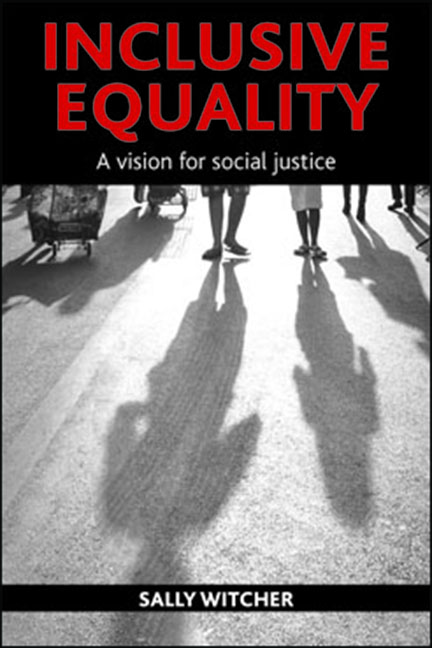Summary
This book began by setting out a tentative proposition; a vision for mainstream society and for social justice, where diversity – of people, cultures, forms of contribution, and so on – is recognised, valued, and accommodated to the maximum extent possible. It followed that inclusion had to be on a basis of empowerment to express difference, rather than conditional on its oppression. However, it was acknowledged that there would be limits to what can be included without jeopardising social cohesion. It was proposed that exclusion on other grounds would contravene social justice.
We are now in a position to understand more about the meaning that underlies that initial snapshot. In the course of exploration, this book has ranged from the depths of abstract theory through to the development of proposals for policy and practice, while attempting to illuminate the path from one to the other. The discussion journeyed from macro-level concerns around the nature of society, to the operation of meso-level institutions, down to factors in micro-level interactions, considering the impact on inclusion of inequalities of different types. It traversed different academic areas of study in the quest to develop the ‘richest possible synthesis’ (Askonas, 2000) of relevant material. This methodology, the knitting together of themes across literatures and disciplines, echoes the quest to find a theoretical basis for the richest possible social synthesis. Both methodology and aim have entailed the breaching of boundaries (between literatures or social categories respectively), the extraction of commonalities, the detection of coherence, and cross-fertilisation between different perspectives. Echoing the fact that people have many characteristics, and thus many options for categorisation exist, it is possible to align themes from the literatures around a framework provided by the structuring and enactment of distributive processes within a wider socio-cultural context.
Key themes from the literatures
The raw materials used to develop the theoretical framework were the key themes extracted from existing theory around disadvantage and exclusion. The first challenge was to consider each separately, attempt to find coherence between them and align them in accordance with the book's goal. This necessitated some degree of theory development. It became clear that each area encompassed themes relevant to others.
- Type
- Chapter
- Information
- Inclusive EqualityA Vision for Social Justice, pp. 205 - 218Publisher: Bristol University PressPrint publication year: 2013



